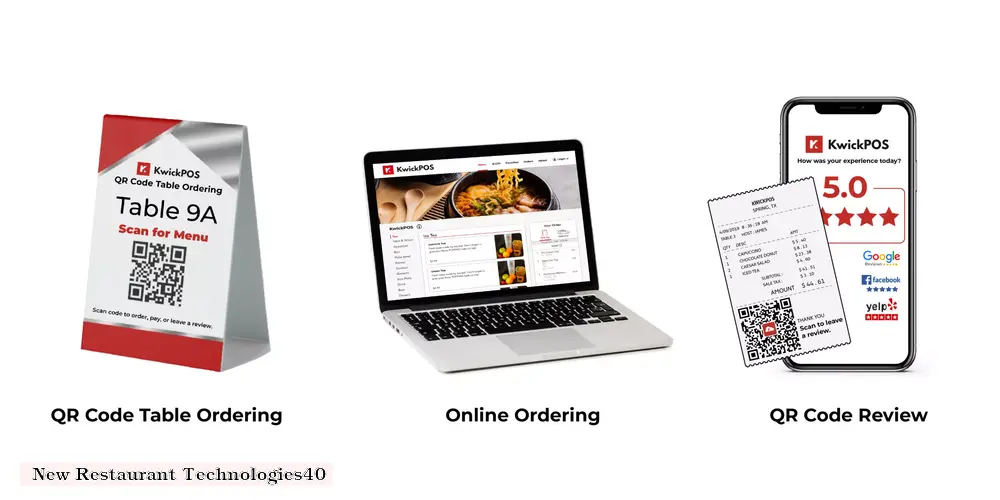New Restaurant Technologies Revolutionizing the Industry
The restaurant industry is undergoing a technological transformation, with innovative solutions emerging to enhance operations, improve customer experiences, and drive profitability. Here are some key new restaurant technologies:
1. Online Ordering and Delivery Platforms:
Third-party platforms
Services like Uber Eats, Grubhub, and DoorDash allow customers to order food online and have it delivered to their doorstep.Restaurant-owned platforms
Many restaurants have developed their own online ordering systems, offering convenience and direct customer engagement.2. Point-of-Sale (POS) Systems:
Cloud-based POS
These systems store data online, providing real-time insights into sales, inventory, and customer behavior.Mobile POS
Handheld devices allow servers to take orders and process payments tableside, improving efficiency and reducing wait times.3. Kitchen Management Systems (KMS):
Order management
KMS track orders from placement to completion, ensuring accuracy and reducing errors.Inventory management
They monitor ingredient levels and alert staff when replenishment is needed, minimizing waste and optimizing inventory.4. Customer Relationship Management (CRM) Software:
Loyalty programs
CRM systems enable restaurants to track customer purchases, offer rewards, and personalize marketing campaigns.Feedback collection
They provide tools for collecting customer feedback, identifying areas for improvement, and building stronger relationships.5. Artificial Intelligence (AI):
Chatbots
AI-powered chatbots assist customers with reservations, order placement, and other inquiries, providing 24/7 support.Predictive analytics
AI algorithms analyze data to predict customer behavior, optimize menu offerings, and forecast demand.6. Self-Service Kiosks:
Order placement
Kiosks allow customers to place orders independently, reducing wait times and freeing up staff for other tasks.Payment processing
They enable customers to pay for their meals without waiting for a server, improving efficiency and reducing checkout lines.7. Smart Refrigerators:
Inventory tracking
Smart refrigerators monitor food levels and alert staff when items need to be replenished, minimizing waste and ensuring freshness.Temperature control
They maintain optimal temperatures for different food items, preserving quality and extending shelf life.Benefits of New Restaurant Technologies:
Improved efficiency
Automation and streamlined processes reduce labor costs and increase productivity.Enhanced customer experience
Convenient online ordering, mobile payments, and personalized service improve customer satisfaction.Increased revenue
Online platforms and loyalty programs expand the customer base and drive repeat business.Data-driven decision-making
Analytics provide valuable insights into customer behavior, enabling restaurants to optimize operations and marketing strategies.Competitive advantage
Embracing new technologies gives restaurants an edge over competitors and positions them for future growth.Conclusion:
New restaurant technologies are transforming the industry, offering numerous benefits to businesses and customers alike. By embracing these innovations, restaurants can enhance their operations, improve customer experiences, and drive profitability. As technology continues to evolve, the restaurant industry will continue to witness exciting advancements that will shape the future of dining.
DISCLAIMER: This information is provided for general informational purposes only, and publication does not constitute an endorsement. Kwick365 does not warrant the accuracy or completeness of any information, text, graphics, links, or other items contained within this content. Kwick365 does not guarantee you will achieve any specific results if you follow any advice herein. It may be advisable for you to consult with a professional such as a lawyer, accountant, or business advisor for advice specific to your situation.

